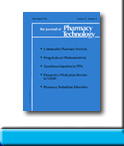 |
 |
Role of CYP450 in Antiplatelet Therapy: Considerations for Patients at Risk for Further Cardiovascular or Cerebrovascular Problems
Chase E Linn, Niren K Shah, Benjamin J Epstein
To request full article click here.
Objective: To determine how interactions with cytochrome P450 (CYP450) isoenzyme pathways may influence the selection of antiplatelet therapy in patients with cardiovascular and cerebrovascular disease.
Data Sources: A MEDLINE search (1966-September 2012) was performed using the following MeSH search terms: clopidogrel, prasugrel, ticagrelor, aspirin, dipyridamole, drug interactions, polymorphism, cytochrome P450, platelets, platelet reactivity testing, and platelet function. In addition, reference citations were reviewed.
Study Selection and Data Extraction: Selected studies analyzed the effects of CYP450 isoenzymes on the efficacy of antiplatelet therapy and potential drug-drug interactions.
Data Synthesis: Antiplatelet therapy is pivotal in reducing the risk of acute coronary syndromes. Thienopyridines are commonly prescribed for antiplatelet drug therapy; however, a multitude of factors can influence their efficacy, given that thienopyridines require activation through CYP450 isoenzymes. Genetic polymorphisms in CYP450 isoenzymes and the susceptibility of drug-drug interactions mediated through the CYP450 system have led to variability in antiplatelet response. Two factors in particular have been prime targets in elucidating the role of CYP450 isoenzymes on thienopyridine activity and bioavailability: CYP2C19*2 polymorphisms and drug interactions with proton pump inhibitors. Additionally, many studies have surfaced in an attempt to quantify a patient’s response to antiplatelet therapy but, to date, none has determined whether platelet reactivity testing is mandatory prior to initiation of therapy or whether it correlates with clinical efficacy. This review spotlights the pharmacokinetic and pharmacodynamic influences that CYP450 isoenzymes exert on antiplatelet therapies and attempts to categorize the role of platelet reactivity testing in determining the clinical significance of drug interactions.
CONCLUSIONS: Suboptimal responses to antiplatelet therapy may occur because of interactions with CYP450 isoenzyme pathways. Further studies are warranted to clarify the impact of genetic polymorphisms and drug-drug interactions on clinical outcomes in patients with cardiovascular/cerebrovascular disease.
J Pharm Technol 2013;29:72-87
To request full article click here.
|
|
|
||
|

